Blog Posts Tagged Bioengineering
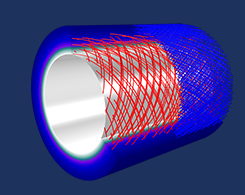
How to Model Large-Strain Viscoelasticity in COMSOL Multiphysics®
Learn how to model large-strain viscoelastic deformation, a common behavior exhibited by polymers and biological tissues, in COMSOL Multiphysics®.
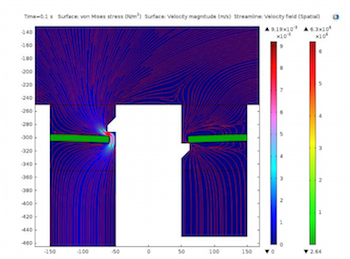
Evaluating an Insulin Micropump Design for Treating Diabetes
Researchers from the University of Ontario Institute of Technology used simulation to develop a MEMS-based micropump that could administer insulin injections in a safe and painless way.
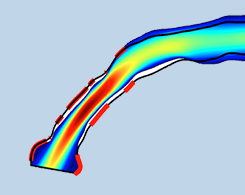
Improving Vascular Access for the Treatment of ESRD Patients
By combining CFD simulations with shape optimization techniques, biomedical engineers can better understand and predict vascular access for renal disease treatments.
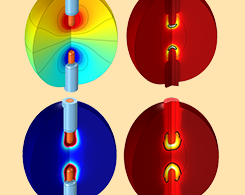
Study Radiofrequency Tissue Ablation Using Simulation
Killing cancerous cells, shrinking collagen, alleviating pain. These are just some of the medical purposes of radiofrequency tissue ablation, a procedure that relies on targeted heat.

Using Simulation to Analyze Arterial Wall Mechanics
Studying arteries from a mechanical standpoint requires a reliable model that can fully describe the anisotropic nonlinear response of this biological soft tissue.
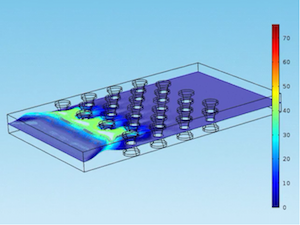
Sensing the Bio in Biosensor Design with a Simulation App
The Biosensor Design demo app predicts the results from measurements of a biomolecule’s concentration (or activity) from an understanding of this molecule’s attachment to an enzyme.
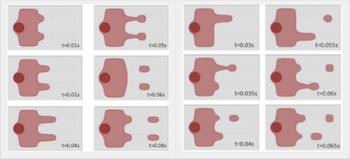
Simulating Analog-to-Digital Microdroplet Dispensers for LOCs
University of Bridgeport researchers designed a high-throughput microfluidic droplet dispenser as an analog-to-digital microfluidic converter for use in lab-on-a-chip (LOC) applications.
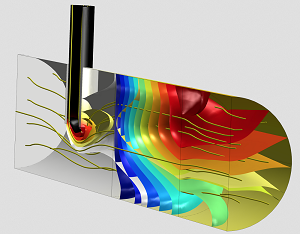
Using Simulation to Optimize Biopharmaceutical Processes
Did you know that you can use COMSOL Multiphysics® to study biopharmaceutical processes? Examples include pharmaceutical mixers, injection devices, dielectrophoretic separation, and more >>
